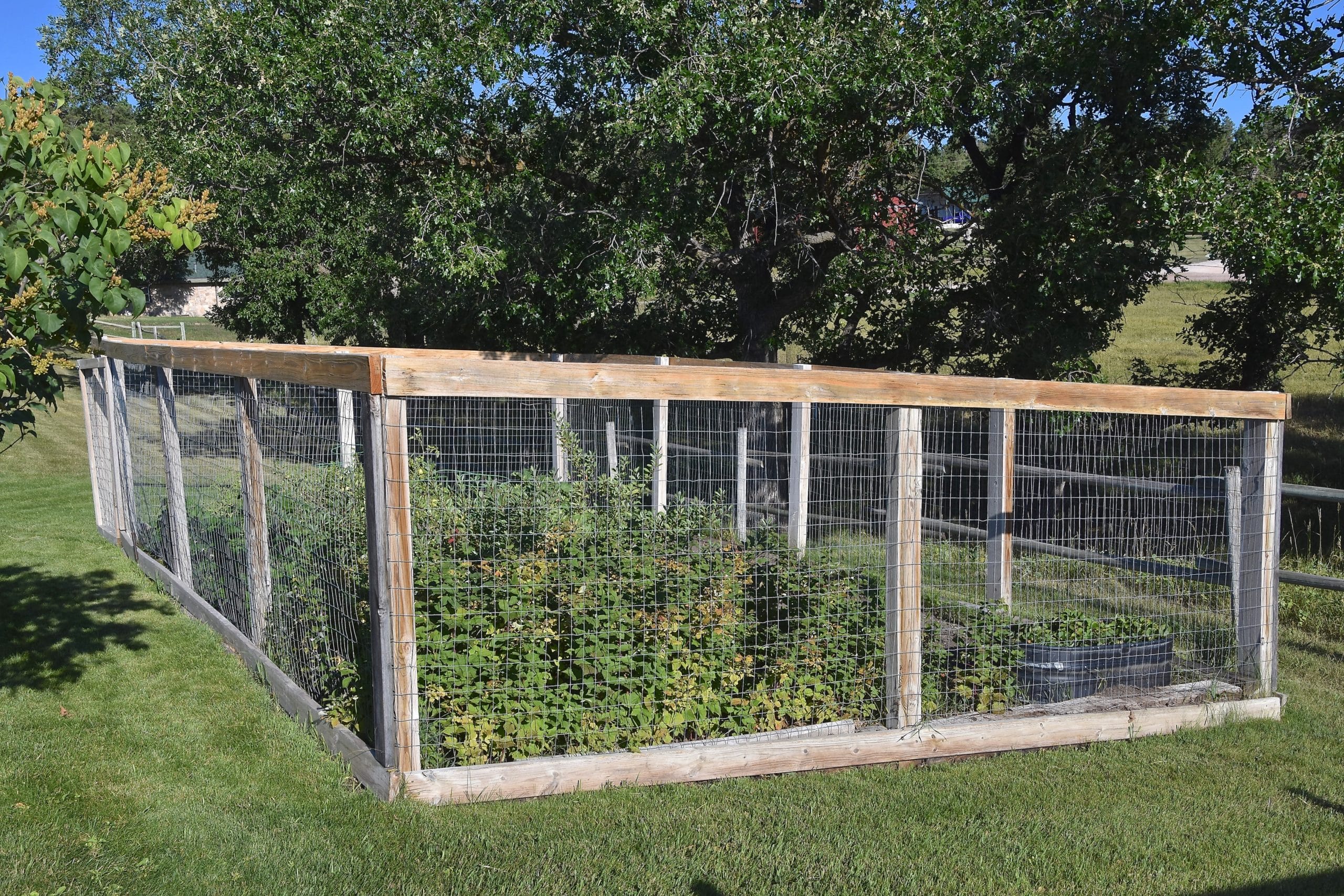The fringe of summer is an exciting time. The sun is not quite blazing yet, and the promise of fresh beans, ripe zucchini, and snappy peas awaits. Before these treats can be harvested, however, they must be protected from the various animals that are as eager to snack on them as you. Garden fencing can be the only sure way to keep your garden safe from herbivorous threats.

Decorative Garden Fencing
Before we get into the nitty gritty about the protective element, let’s look at some of the garden fencing styles that are available. Some of these can be fixed up to fend off animals, but not all.
For a taste of Asian influence, consider a bamboo trellis. Bamboo will bring a soft, natural feeling to your garden. Mesh wire fences can serve the same function and are sometimes a bit more sturdy. If you’re not worried about animal interlopers, you might drape rope between decorative planks of wood for an almost nautical feel.
Cedar is a warm wood that gives a homey feel to any garden. Thicker vertical planks can protect your leafy greens from hangry deer and rabbits, and slim horizontal planks make an excellent trellis. In fact, just about any kind of wood looks lovely as a trellis. For a contemporary twist, alternate the slats of your wooden fence, sections of vertical boards interspersed with sections of horizontal.
A combination of wood and wire leans more toward the anti-animal angle. The wood lends elegance, and the wire brings protection. For a greater sense of graceful sophistication, consider some decorative metal garden fencing. To this or any of the other garden fencing ideas listed, add some hanging lights to create a magical fairy garden or a trendy gathering place.
If nothing will do but the classic white picket fence, you can be satisfied in one of two ways. Wooden boards painted white is the traditional way, but now it is common to craft such from vinyl. Vinyl is impervious to wood-boring insects and consequently tends to last longer, though it is not as environmentally friendly.

How Do I Keep Animals Out of My Garden Fence?
If your chief concern is keeping animals off of your spinach, use quality materials while building your fence. If you cut corners on the quality of your wood or mesh, woodland or neighborhood animals will have an easier time breaking through. Also keep in mind that if an animal can’t see what it is missing, the threat to your leafy greens is lessened. If your garden is visible to deer and other herbivores, they will try harder to get to it.
Designing a fence against animals is a nuanced challenge, and the first step is to know which animals you are guarding against. For example, fences to keep out deer must be high (because deer can jump) and close to the ground (because deer can wiggle under fences). They are unlikely, on the other hand, to chew through your garden fence panels. Raccoons, though relentless, don’t like getting their paws caught, so you can drape clinging material like bird netting on the ground outside your fence to deter them.
Garden fencing to fend off dogs doesn’t usually need to be taller than three feet, but it should extend into the ground to discourage digging. This is also the case to deter rabbits. The most effective way to do this is to bury your fencing into the ground six inches to create a subterranean barrier. If your fence is mesh or chain link, curve the bottom of the fence to form an apron. If you’re concerned about cats, wire mesh is less appealing to climb than wood.

A Permanent Perimeter vs. Temporary Add-Ons
If your goal is to protect your garden from animals, you may not need a new fence. Covering the threatened munchables with chicken wire may be sufficient. Sometimes a plastic mesh will do just as well, but if your trouble is rabbits, they’ll chew right through more flimsy covering. If you do settle on building a fence, make sure to check your local ordinances before starting. Your city may have strictures about potentially view-blocking height.
Electric Fencing
Electric fencing can be more visually subtle but more expensive, though it is often more effective than all other kinds of fencing. Once an animal experiences a shock from an electric fence, they are not likely to try again. Make sure that your electric fence is free from debris or shrubbery as grounding contact from plant life will reduce its charge, sometimes completely.
Fencing in Salt Lake County
We are as eager as you to safeguard your garden’s treasure. If you have further questions about garden fencing or if you’d like a professional team to build the perfect fence for you, give us a call at All Over Fence today.

















